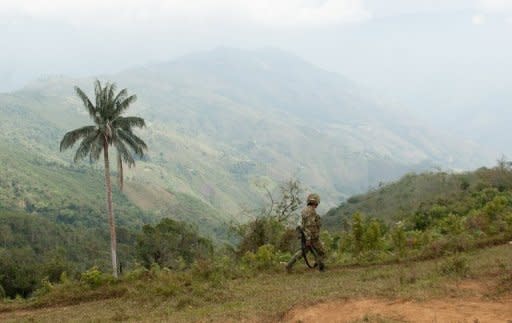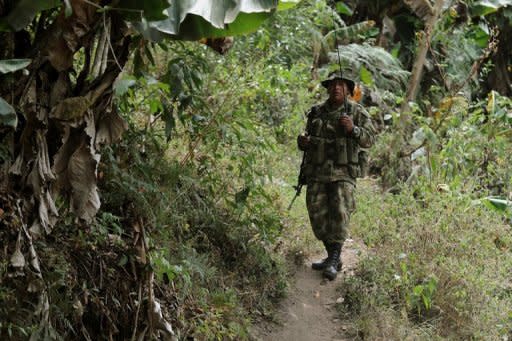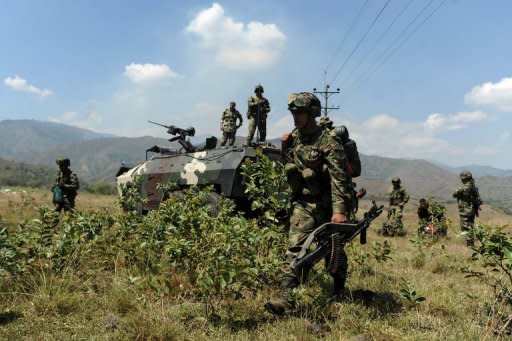Colombia in 'exploratory' talks with FARC rebels
Colombian President Juan Manuel Santos confirmed that his government had begun "exploratory discussions" with leftist FARC rebels to lay the groundwork for a full-fledged peace process. "Since the day my government took office, I have respected my constitutional obligation to seek peace, and we have undertaken exploratory talks with the FARC, to seek an end to the conflict," Santos said in a speech to the nation. The president did not say where the discussions had taken place or who took part in them, but noted that the results of the talks would be known "in the coming days." The last government negotiations with the Revolutionary Armed Forces of Colombia (FARC) date back to 2002. Authorities broke off those talks, accusing the rebels of taking advantage of the demilitarization of parts of the country to rebuild their forces. Santos, who has been in power since 2010, said this time, Colombian forces would not halt their operations or reduce their presence nationwide while contacts with the FARC were continuing. The president also said in the televised speech that another leftist rebel group, the National Liberation Army (ELN), was interested in being part of the process, and that he was open to their participation. Santos outlined three key themes for any talks: "We must learn from past mistakes to stop repeating them; any process must lead to the end of the conflict; and, operations will continue and the military's presence will be maintained on every centimeter of national territory." Earlier in the day, Colombia's former vice president Francisco Santos said the two sides had agreed to open peace talks in the Norwegian capital Oslo on October 5, and then continue the talks in Havana, Cuba. Colombian media were reporting the same plans. Earlier Monday, one key member of Santos' team, chief prosecutor Eduardo Montealegre, acknowledged that Colombia "must move toward a peace process." "The end of fighting in Colombia won't be brought about with arms," he told W radio. "Putting this decades-old conflict behind us will be achieved with a peace process. We all deserve peace; it is a constitutional right." Daniel Garcia-Pena, who was peace commissioner from 1995-1998 under ex-president Ernesto Samper, also sounded positive about the outlook. "If the contacts are confirmed, I am upbeat. I think both the government and the FARC understand that continuing the war is senseless," he said. "The rebels have known for some time now that they are not going to take power in a war, and that they are going to have to become a (legal) political force if they are going to survive in a postwar atmosphere," Garcia-Pena said. And the government "knows ending the conflict is central to its success in being able to make Colombia part of the world of major democracies," he stressed. Founded in 1964, the Marxist-inspired FARC -- Latin America's largest and longest-fighting insurgency -- is believed to have some 9,000 fighters, most of them hiding out in mountainous and jungle areas. Through mediation by former senator Piedad Cordoba and the International Committee of the Red Cross, the FARC has released dozens of hostages since 2008, most of them police officers or troops captured during clashes. The FARC renounced the practice of kidnappings for ransom in February. The group released its last 10 military and police hostages in April, but is believed to still be holding dozens of civilians. In June, Colombian lawmakers approved a constitutional reform measure that allows for the possibility of amnesty for demobilized guerrillas. The ELN has another 2,500 fighters, according to government estimates.




